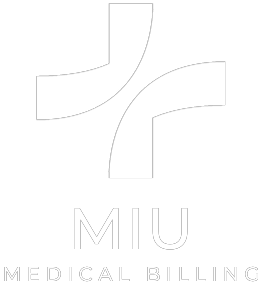Introduction: The Critical Role of Advanced Medical Billing in Healthcare
Exploring the matrix of healthcare finance, inadequate or poor handling of claim denials is a formidable constraint to providers’ revenue cycles. Modern medical billing techniques are one of the more effective tools that have been developed to counteract this kind of issue. Its state-of-the-art and technological approaches, methods of denial rate reduction, and speed up of reimbursement processes will increase the financial condition of healthcare organizations. In this extensive practice, you will learn how improved medical billing can help you change the revenue cycle in your healthcare practice and help improve its financial health.
Understanding the Root Causes of Claim Denials
Some senior medical billing experts know that preventing or fighting claim denials begins with understanding why they occur. Few sophisticated medical billing approaches include the analysis of denial patterns in a bid to determine persistent problems. Hence, by applying various and diverse data analytics tools, the billing teams can identify specific problem areas for escalation for improvement, whether it is training of staff, optimization of processes, or upgrade of systems. It is the bedrock of a sound denial prevention strategy and outlines the necessary data detailing.
Preventive Measures: Advanced Medical Billing Strategies for Clean Claims

Again, as a significant advance in medical billing, prevention is the best way, meaning that clinicians must submit clean claims, and denying them is highly improbable. A number of current trends spotlight the need to enhance the stringent pre-submission process of any claim. This includes checking the facility for generic errors such as missing or invalid codes, diagonal code inconsistencies, and missing customer details, among others. Modern medical billing systems can also check on the patient’s insurance coverage at the time of admission; if the cover exists, the services to be offered can be checked to see if they are covered. Such errors can be corrected before they are submitted, increasing the first-pass resolution tremendously.
Leveraging Technology: Advanced Medical Billing Software and AI Solutions
It is also important to note that technology has played a significant role in attaining the above advanced medical billing. AN AI and ML-based new-generation billing software that also eliminates the traditional and lengthy process of claim submission and follow-up. These sophisticated medical billing applications can identify and determine if there is a problem, fix it, and even predict the rate of denial of a given claim. Also, AI-driven systems can learn from previous denials and improve their performance and accuracy as more data is fed into the system. Incorporating these technologies will go a long way in enhancing billing effectiveness for healthcare providers.
Streamlining Workflows: Advanced Medical Billing Process Optimization
The last one shifts the importance of efficient workflows, which is essential in advanced medical billing. Automating systems in healthcare organizations ensures the reduction of errors, enhancement of productivity, and fast-tracking of the revenue cycle. Modern techniques in medical billing involve the use of practices and procedures that follow the general conduct of patient registration, captured charges, and claims. This could entail developing elaborate lists of things to do and ways to do it, clinical and billing staff cooperation and development, and practical alarms to help notice problems in time. Advanced medical billing also incorporates staff education to keep all workers abreast with billing rules and procedures.
Mastering Coding: Advanced Billing Techniques for Accurate Coding
Accurate coding is a cornerstone of successful medical billing. Advanced medical billing professionals understand the nuances of complex coding systems like ICD-10 and CPT and stay abreast of annual updates and changes. They employ code mapping and bundling techniques to ensure services are billed correctly and compliantly. Advanced medical billing also involves regular coding audits to identify improvement areas and maintain high accuracy standards. By focusing on coding precision, healthcare providers can significantly reduce denials related to coding errors and improve their overall reimbursement rates.
Effective Denial Management

The work of medical billing depends to a large extent on the accuracy of codes used for charge and bill actions. There is always a difference between the senior medical billing individuals and the rest of the practitioners since they can know about every detail of the ICD-10 and CPT codes and the annual changes. They use tools like code mapping and bundling to help them bill the services correctly and conform to the legal requirements. In addition to coding, advanced medical billing includes periodic coding audits to assess the strengths and weaknesses and apply improved coding consistency standards. As such, it becomes possible for healthcare providers to significantly decrease coding-related denials, hence enhancing their overall reimbursement status.
Continuous Improvement: Advanced Medical Billing and Performance Monitoring
Modern billing in the healthcare industry are constantly changing, and the best medical billing practices stress the need to change. Examples include denial rates, days in accounts receivable, and clean claim rates, which must be viewed continually to assess performance trends. Such complex medical billing processes include establishing goals that refer to these metrics and endeavoring to attain them periodically. Feedback and Root Cause Analysis in reviews ensure timely identification of areas for improvement while enhancing constant changes in billing procedures. Such culture keeps changing to ensure that healthcare organizations are ready with strategies to improve their revenue cycle management.
Conclusion
Thus, in the present state of growing financial pressure on healthcare providers, utilizing and implementing different advanced medical billing techniques can no longer afford to be an addition or something optional – it has become a necessity for survival and or success in the industry. Through prevention strategies, integration of advanced technology, streamlining of processes, coding compliance, effective denial management, and organizational embracement of change, it is possible to reduce claim denials and improve the health of the respective networked care delivery organizations’ finances. Advanced medical billing practices streamline operations and increase revenue and allow providers to focus more on what matters most: the key to listening to the patient, which is to provide quality patient care. So, in the constantly changing environment of the healthcare industry, future success will be found in those companies or people who utilize progressive thinking in the medical billings they employ.




